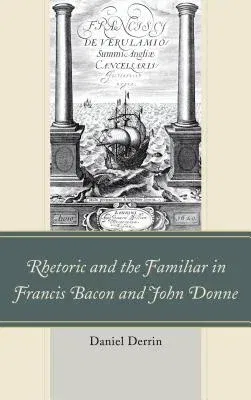Daniel Derrin
(Author)Rhetoric and the Familiar in Francis Bacon and John DonnePaperback, 24 February 2015

Qty
1
Turbo
Ships in 2 - 3 days
In Stock
Free Delivery
Cash on Delivery
15 Days
Free Returns
Secure Checkout
Print Length
210 pages
Language
English
Publisher
Fairleigh Dickinson University Press
Date Published
24 Feb 2015
ISBN-10
1611478081
ISBN-13
9781611478082
Description
Product Details
Author:
Book Format:
Paperback
Country of Origin:
US
Date Published:
24 February 2015
Dimensions:
22.86 x
14.99 x
1.27 cm
ISBN-10:
1611478081
ISBN-13:
9781611478082
Language:
English
Pages:
210
Publisher:
Weight:
272.16 gm

